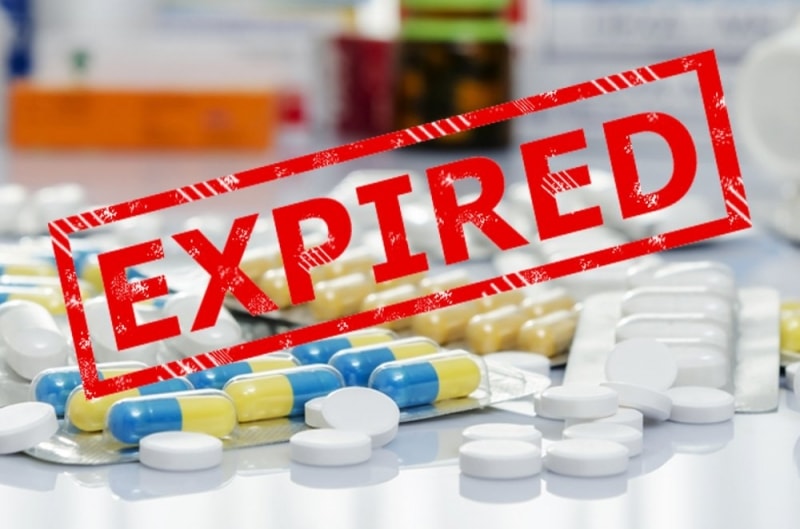How dangerous is it to take expired medicine?
When sick, some people will rush to take the medicine available at home without paying attention to the expiration date or knowing but still trying to use it temporarily. How dangerous is it to accidentally take expired medicine?
In the moment of illness, many people will easily accept the option of "using" expired medicine. However, according to advice from the US Food and Drug Administration (FDA), this is not the right thing to do. The agency clearly states: "If your medicine has expired, do not use it."

The reason is that after the expiration date printed on the package has passed, there is no guarantee that the drug is still safe and effective. According to the FDA, the expiration date is a mark of time when the manufacturer promises that the quality, stability and active ingredients of the drug are still at optimal levels. After this date, everything becomes uncertain.
Are expired drugs immediately dangerous?
Not necessarily. Don’t panic if you accidentally take a paracetamol pill that’s a few months out of date. “Very few drugs become harmful beyond their expiration date,” says James Reissig, MD, PhD, a pharmacist at the University Hospitals of the United States, as quoted in The Science of Health. “Most drugs simply lose their effectiveness over time due to changes in their chemical makeup.”
In other words, the problem is not that the drug turns toxic, but that its therapeutic effect is no longer reliable. This is especially dangerous in cases where precise or urgent treatment is needed.
With medications that treat serious conditions, such as insulin for diabetics, using expired medication can have serious consequences. Expired insulin no longer controls blood sugar effectively, and this can lead to severe, even life-threatening hyperglycemia.

Photo: Internet
Similarly, epinephrine injections, used for acute allergic reactions such as anaphylaxis, may also lose their effectiveness after their expiration date. While in some emergency situations, using expired epinephrine may be better than using nothing at all, this option should only be used as a last resort when no other options are available and should not be relied upon as a routine solution.
One of the biggest dangers associated with using expired medications is when it comes to antibiotics. According to the FDA, some antibiotics can become contaminated after they expire, while the effectiveness of the active ingredient may be reduced. This can lead to infections not being effectively treated, making the illness worse, and worse, promoting the development of antibiotic resistance.
Antibiotic resistance is a global health crisis. Researchers estimate that 1.27 million people died from infections linked to antibiotic resistance in 2019, and the number could rise if left unchecked.
Why do medicines have an expiration date?
Each drug undergoes rigorous testing to determine its stability period, the length of time the active ingredients remain effective. The expiration date is determined by the manufacturer based on research data, to ensure the quality of the product that reaches the consumer.
“Expiration dates are there to protect you. They are not random,” Dr. Simon Hodes, a family medicine physician in the UK, told the American health information site Health Essentials. This means that even if the medicine still looks “normal,” has not changed color, or has no strange smell, there is no guarantee that it will still work as expected.
Many families tend to hoard medications, but fail to check expiration dates regularly. When you discover a bunch of medications are no longer usable, the solution is not to dump them in the trash or flush them down the toilet.
According to FDA guidelines, only a very small number of drugs are allowed to be flushed down the toilet, such as acute pain medications that have a risk of addiction if abused. Most other drugs, especially antibiotics and chronic medications, should be disposed of through drug take-back programs.
Using expired medications should not be an option. While not all expired medications are immediately harmful, the loss of effectiveness, the risk of infection, and the risks in emergency situations make their use unsafe.
It is best to periodically check your medicine cabinet and properly dispose of any expired ones. And in case you need to take a medicine and have nothing but old medicine, contact your doctor, nearest pharmacy or health center for advice instead of making your own decision.
In healthcare, prevention is still the best protection, and that starts with small details like checking the expiration date of your medication.




.jpg)
